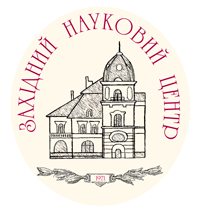Lidiya BOICHYSHYN, Mariya LOPACHAK, Bogdan KOTUR, Oksana HERTSYK, Tetyana BODNAR
Ivan Franko National University of Lviv, Kyryla i Mefodiya St., 6, 79005 Lviv, Ukraine e-mail: lidiya.boichyshyn@lnu.edu.ua
DOI: https://doi.org/10.37827/ntsh.chem.2024.75.007
INVESTIGATION OF THE INTERFACE BETWEEN THE AMORPHOUS ELECTRODE Co75.5Fe4.6Si6.0B16.7 / AQUA SOLUTION NaCl BY ELECTROCHEMICAL IMPEDANCE SPECTROSCOPY
Amorphous metal alloys (AMА) based on cobalt are promising materials with near-zero magnetostriction. In recent years, AMА have been used as sensors and biomaterials for the internal transport of drugs, mainly for oncological diseases. Therefore, it is necessary to investigate in detail the processes of their dissolution and passivation in aggressive environments, in particular, in a 3% aqueous solution of NaCl, in which the solubility of oxygen is the greatest. It is necessary to build up a homogeneous oxide-hydroxide film on AMC, which would be a substrate for organic immobilizers of medical preparations. In aggressive environments, these alloys are subject to corrosion due to loose and defective protective layers formed on their surface. The purpose of the work was to study the phase separation boundary of amorphous electrode Co75.5Fe4.6Si6.0B16.7/NaCl aqueous solution by electrochemical impedance spectroscopy and determine the thickness of oxide/hydroxide layers. By the potentiometric and cyclic voltametry methods the corrosive processes of the amorphous metallic alloys Co75.5Fe4.6Si6.0B16.7 / 3% aqua solution NaCl interface has been investigated. It is shown that contribute appreciable passivation and 2.5x10–3 % KMnO4 addition to the 3% aqua solution NaCl promote the significant passivation of electrode what is marked by Еcorr. shift to anodic side and icorr. shows the about 10–7 А/cm2 value. The surface protective layers on AMA electrode, formed during polarization processes at –290 and –550 mV potentials in 3% aqua solution NaCl before and after 12 hours preimmersion in this solution as well as in this solution with 2.5x10–3 % KMnO4 addition were studied by means of electrochemical impedance spectroscopy method. The model equivalent electric circuits for AMA (passivity layer) / 3% aqua solution NaCl system were fitted. It is shown, that at –550 mV potential the equivalent electric circuits consist of the ox/red reaction resistance and oxide layer capacitance. The low impedance parameters at corrosive protection condition relating with multiplayer surface structure, which consists thin and compact inside layer and more porous outside one, are confirmed by SEM results.
Keywords: amorphous metallic alloys, corrosion, electrochemical impedance spectroscopy.
References:
-
1. Lopachak М.М., Boichyshyn L.M., Reshetnyak O.V. Kinetics of Nanostructuring and Physicochemical Properties of
Amorphous Alloys of the Co–Si–B System. Nanoobjects and Nanostructuring. Vol. I. 2022. P. 97–114.
2. Lopachak M. M., Boichyshyn L. M., Nosenko V. K.,. Kotur B. Ya. Crystallization kinetics of the Co77Si11B12
amorphous alloy. Chem. Met. Alloys. 2021. Vol. 14(1–2). С. 1–6. (https://doi.org/10.30970/cma14.0410).
3. Lopachak M.M., Boichyshyn L.M., Nosenko V.K., Hertsyk O.M., Kovbuz M.O. Formation of nanophase in the
amourphous matrix of the Co77Si11B12 alloy during nonisothermal heating. XXII International Seminar on Physics and
Chemistry of Solids (ISPCS'20): Book of Abstracts, Lviv, Ukraine, 17–19 June 2020. – Lviv, 2020. – P. 15.
4. Lopachak M.M., Boichyshyn L.М., Reshetnyak O.V. Electrochemical Impedance Spectroscopy Study of Thin Films with
Insulating and Anticorrosion Properties on Cobalt-Based Amorphous Alloys. Mater. XIX International Freik’s
Conference on Physics and Technology of Thin Films and Nanosystems (ICPTTFN-XIX) (October 9–14, 2023,
Ivano-Frankivsk). - Ivano-Frankivsk. – P. 90.
5. Lopachak M.M., Boichyshyn L.M., Karolus M., Pandiak N.L., Nosenko V.K. Iron and Chromium influence on
crystallization kinetics of Cobalt-based amorphous alloys. Abstract Book of Intern. research and practice
conference «Nanotechnology and nanomaterials» (NANO-2023) (16–19 August 2023, Bukovel). – Kyiv. – P. 429.
6. Massaneiro J., Valério T.L., Pellosi D.S., Gonçalves da Silva B. J., Vidotti M. Electrocatalytic oxidation of
glycerol performed by nickel/cobalt alloys: Adding value to a common subproduct of chemical industry. Electrochim.
Acta. 2024. Vol. 506(1). P. 145013. (https://doi.org/10.1016/j.electacta.2024.145013).
7. Jeon J., Jang K.-B., Yeo S., Jeon K. R., Han H., Choi H., Mhin S. Enhanced oxygen evolution reaction using
carbon-encapsulated Co–Fe–Al alloy. J. Alloys Compd. 2024. Vol. 1005(15). P. 175969. (https://doi.org/10.1016/j.jallcom.2024.175969).
8. Al Jabbari Y. S., Dimitriadis K., Sufyan A., Zinelis S. Microstructural and mechanical characterization of six
Co–Cr alloys made by conventional casting and selective laser melting. J. Prosthet. Dent. 2024. Vol. 132(3). P.
646.e1–646.e10. (https://doi.org/10.1016/j.prosdent.2024.06.015).
9. Shang R., Teng J., Xie C. Static recrystallization behavior of biomedical Co-29Cr-6Mo-0.16 N alloy with
negative stacking fault energy. Mater. Charact. 2024. Vol. 214. P. 114092. (https://doi.org/10.1016/j.matchar.2024.114092).
10. Saha S., Grandhi M., Kiran K.U.V., Liu Z., Roy S. Investigating the effect of select alloying elements in
additively manufactured Co–Cr alloy for dental prosthetics. J. Mater. Process. Technol. 2024. Vol. 329. P. 118434.
(https://doi.org/10.1016/j.jmatprotec.2024.118434).
11. Ma H., Mu Ch., Yang M., Mao F., He A. Effect of structural heterogeneity on stable pit growth of Co-based
metallic glasses. Corros. Sci. 2024. Vol. 232(15). P. 112032. (https://doi.org/10.1016/j.corsci.2024.112032).
12. Ren J., Li Ya., Liang X., Kato H., Zhang W. Role of Fe substitution for Co on thermal stability and
glass-forming ability of soft magnetic Co-based Co–Fe–B–P–C metallic glasses. Intermetallics. 2022. Vol. 147. P.
107598. (https://doi.org/10.1016/j.intermet.2022.107598).
13. Jia Sh., Jiang Yu., Chen Sh., Han X. Enhancing glass forming ability and magnetic properties of Co–Fe–Si–B
metallic glasses by similar element substitution: Experimental and theoretical investigations. Comput. Mater. Sci.
2022. Vol. 213. P. 111639. (https://doi.org/10.1016/j.commatsci.2022.111639).
14. Rao K. V., Smakula A. Dielectric Properties of Cobalt Oxide, Nickel Oxide, and Their Mixed Crystals. J. Appl.
Phys. 1965. Vol. 36. P. 2031–2038. (https://doi.org/10.1063/1.1714397).
How to Cite
BOICHYSHYN L., LOPACHAK M., KOTUR B., HERTSYK O., BODNAR T.INVESTIGATION OF THE INTERFACE BETWEEN THE AMORPHOUS ELECTRODE Co75.5Fe4.6Si6.0B16.7 / AQUA SOLUTION NaCl BY ELECTROCHEMICAL IMPEDANCE SPECTROSCOPY Proc. Shevchenko Sci. Soc. Chem. Sci. 2024. Vol. LXXV. P. 7-16.

